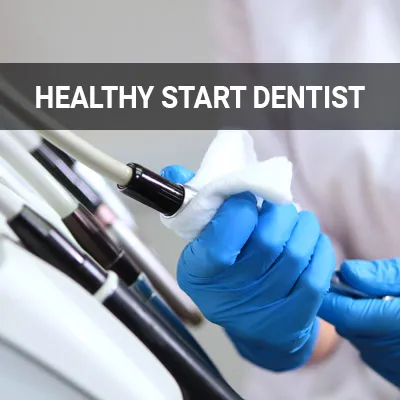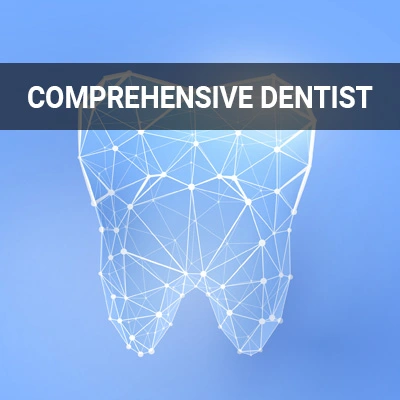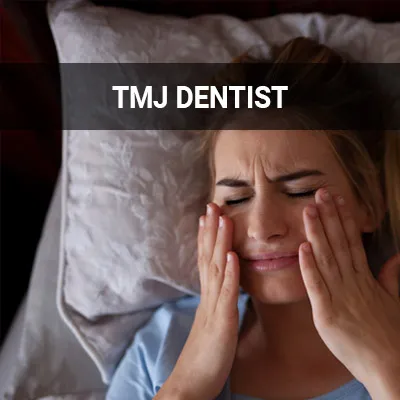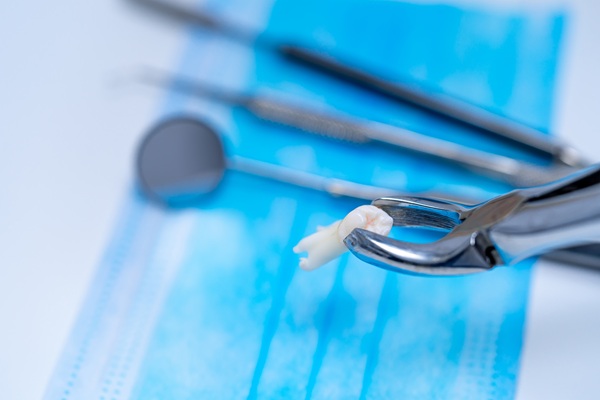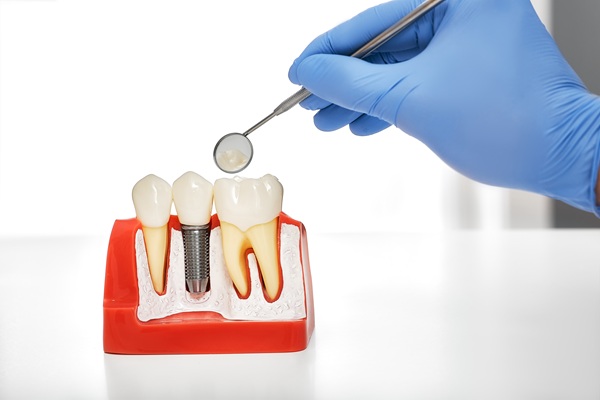Seeing a Complete Health Dentist for TMJ Aurora, CO
A complete health dentist can treat disorders of the temporomandibular joint (TMJ) by examining your overall health concerning TMJ symptoms through the lens of total health dentistry. TMJ disorders relate to conditions affecting the muscles of your head and neck or the jaw itself. TMJ treatments are available at Southland Smiles in Aurora and the surrounding area. We guide you and your family through total health dentistry.
Our team offers a range of services, including procedures used to treat TMJ. Call us at (720) 599-2961 to learn more.
Why Complete Health Dentistry
Complete health dentists take a more comprehensive approach to dentistry. Instead of treating a patient's isolated symptoms, they consider all aspects of their health and how they may affect each other. As such, complete health dentists dedicate themselves to find the root cause of their patient's conditions. This allows them to treat their overall health through their oral health. It also makes it possible to identify signs of other, broader health conditions.
This is especially important when dealing with TMJ since it is linked with so many other systemic conditions. Studies have shown that TMJ patients are more sensitive to pain. They also present body pain areas more frequently than their counterparts. Experts hypothesize that this implies a generalized dysfunction of the patient's nociceptive system, the sensory nervous system's way of encoding harmful stimuli. Thus, those with TMJ may have high rates of other painful conditions and systemic diseases occuring at the same time.
“…those with TMJ may have high comorbidity rates of other painful conditions and systemic diseases.”
Understanding TMJ
Temporomandibular joint disorders (also known as TMJ, TMJ disorders, TMJD, or TMD) occur when an individual's temporomandibular joint sustains damage or is otherwise malfunctions. Ideally, this joint should function like a sliding hinge that connects the jawbone to the skull. There is one temporomandibular joint on each side of the jaw. Individuals affected by TMJ experience pain in the jaw joint and the muscles controlling jaw movement.
It can be challenging to determine the exact cause of a patient's TMJ disorder, especially since there may be several different factors at play. These include but are not limited to arthritis, genetics, and jaw injury. Those with jaw pain are also likely to have bruxism, a condition in which one clenches or grinds their teeth. However, not everyone with bruxism has TMJ (or vice versa).
“Individuals affected by TMJ experience pain in the jaw joint and the muscles controlling jaw movement.”
Recognizing the Signs of TMJ
TMJ disorders can cause severe pain and discomfort, which may either be temporary or last years. This may affect either one or both sides of the face. It affects women more commonly than men, and it shows up most frequently in patients between the ages of 20 and 40. Common symptoms of TMJ include:
- A bite that suddenly feels uncomfortable
- Feeling “tired” in the face
- Jaws getting “stuck” or “locked” in the open- or closed-mouth position
- Pain or tenderness in or around the ear when chewing, speaking, or opening the mouth wide
- Pain or tenderness in the face, jaw joint area, neck, and shoulders
- Problems opening the mouth wide
- Swelling on the side of the face
- Trouble chewing
Many of these symptoms overlap with other conditions, making proper diagnosis critical. A complete health dentist will conduct a physical exam and ask the patient about their health history to rule out (or identify) any other health issues the patient may have. They will also check the jaw, bite, and facial muscles for functionality. Full-face X-rays, MRIs, or CT scans may also be necessary, depending on the severity of the patient's condition.
“A complete health dentist will conduct a physical exam and ask the patient about their health history to rule out (or identify) any other health issues the patient may have.”
Check out what others are saying about our dental services on Yelp: Seeing a Complete Health Dentist for TMJ in Aurora, CO
TMJ and Complete Health
TMJ is associated with several other health issues, including but not limited to, orofacial manifestations, scoliosis, and periodontal disease. Orofacial manifestations of TMJ include painful chewing, maximal mouth opening, and TMJ morning stiffness. At least one study has also shown that scoliosis could contribute to the restricted range of motion associated with TMJ disorders by causing a muscular imbalance. Additionally, any unilateral chewing associated with chronic periodontitis may also cause structural changes in the temporomandibular joint and worsen any secondary symptoms. Thus, treating any of these conditions has the potential to treat all others.
As complete health dentists are dedicated to a patient's total wellness, they are well-aware of such issues and can identify and treat them accordingly. No condition exists in isolation; instead, they are all inextricably linked. With patients' permission, complete health dentists can forward any relevant information to all pertinent healthcare providers to devise a comprehensive, custom-made treatment plan tailor-made to best meet their needs and improve their overall health.
“TMJ is associated with several other health issues, including but not limited to orofacial manifestations, scoliosis, and periodontal disease.”
Questions Answered on This Page
Q. What can complete health dentistry do for my TMJ?
Q. What is TMJ?
Q. Is TMJ associated with any other health conditions?
People Also Ask
Q. How can a dentist help with TMJ?
Q. What is the difference between traditional dentists and total health dentists?
Q. Why is preventative care important? How can it save you money?
Q. Why is it important to find the right general dentist?
Q. What are some conditions that a complete health dentist can diagnose?
Q. What family members may need extra help with their oral hygiene?
Treating TMJ Disorders
While some TMJ disorders resolve naturally, if symptoms persist, one should visit a TMJ dentist. Total health dentistry seeks to identify the root cause of TMJ to treat the condition and not just the symptoms. That said, various levels of pain remain the primary symptom, and pain relievers get recommended as first-line therapy. In cases related to arthritis, anti-inflammatory drugs are typically prescribed with steroid injections to manage severe pain.
Most treatments for TMJ relieve jaw pain or strengthen the jaw muscles. In some cases, oral appliances like a soft mouth guard may relieve pressure or gently realign the jaw. Physical therapy approaches include jaw exercises to stretch and strengthen jaw muscles and non-pharmacotherapy pain relief treatments, such as ultrasound, moist heat, and ice. Other non-invasive treatments for TMJ may include cognitive behavior therapy and relaxation techniques. Practitioners recommend surgery for severe cases or when less invasive treatments fail to relieve symptoms. TMJ procedures include arthrocentesis, TMJ arthroscopy, modified condylotomy, and open-joint surgery.
“Total health dentistry seeks to identify the root cause of TMJ to treat the condition and not just the symptoms.”
Frequently Asked Questions
Q. What is total health dentistry?
A. Total health dentistry is a more comprehensive approach to primary care dental services. A total health dentist has a deeper understanding of the oral-systemic link. Total or complete health dentistry considers a person's overall health and how it influences oral health and vice versa.
Q. What is TMJ?
A. TMJ is short for temporomandibular joint disorders (also called TMD or TMJD). TMJ disorders get characterized by jaw pain or dysfunction affecting the joints where your jawbone connects to your skull. TMJ may be due to stress, degenerative conditions, or injury to your jaw.
Signs of TMJ include:
Q. What health conditions get associated with TMJ?
A. TMJ disorders are commonly associated with other health conditions, including arthritis, scoliosis, and periodontal disease. Many patients report being especially sensitive to pain. For this reason, some experts believe TMJ may also be related to sensory nervous system disorders.
Q. How do you treat TMJ?
A. Since TMJ disorders are often related to other health problems, a complete health dentist or TMJ dentist needs to diagnose TMJ and evaluate any underlying conditions. Effectively treating TMJ usually requires also treating the underlying health issue. Treatments include pain relievers, anti-inflammatory medications, steroid injections, and physical therapy approaches to relieving pain and strengthening jaw muscles. Oral appliances may correct TMJ, and in severe cases, surgery may be indicated.
Q. What can someone do at home to improve their TMJ symptoms?
A. There are steps a person can take on their own to help lessen the symptoms of TMJ. These include sticking to soft foods, taking notice of bad habits such as teeth grinding, and properly exercising the jaw. Your complete health dentist can recommend the appropriate jaw exercises to help you relieve your TMJ symptoms.
Dental Terminology
Call Us Today
When choosing a primary dental care provider, you want to make sure that they can cover all the bases — including treating your TMJ. Our complete health dentist at Southland Smiles may be able to help. Call us today at 720-599-2961 to schedule an appointment or to learn more about our services.
Helpful Related Links
- American Dental Association (ADA). Glossary of Dental Clinical Terms. 2025
About our business and website security
- Southland Smiles was established in 2009.
- We accept the following payment methods: American Express, Cash, Check, Discover, MasterCard, and Visa
- We serve patients from the following counties: Arapahoe County, Adams County and Douglas County
- We serve patients from the following cities: Aurora, Centennial, Parker, Englewood, Foxfield, Castlewood Rock, Lone Tree, Elizabeth, Franktown and Highlands Ranch
- National Provider Identifier Database (1265685796). View NPI Registry Information
- Healthgrades. View Background Information and Reviews
- Norton Safe Web. View Details
- Trend Micro Site Safety Center. View Details
Back to top of Seeing a Complete Health Dentist for TMJ



